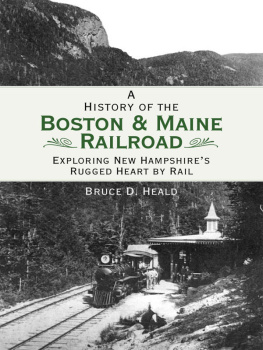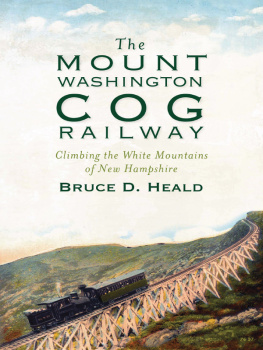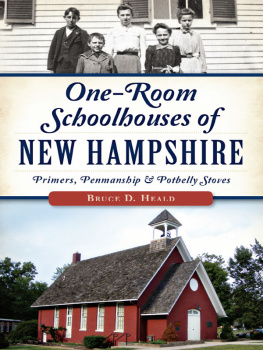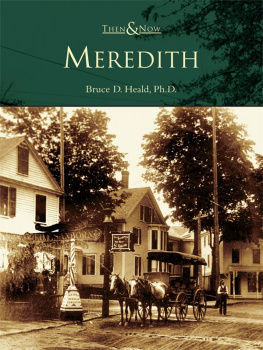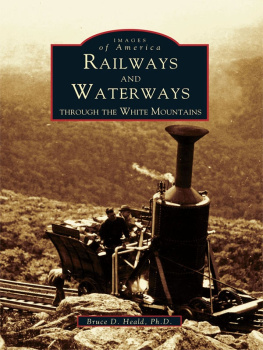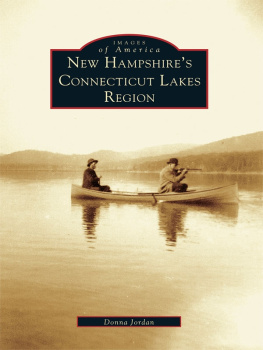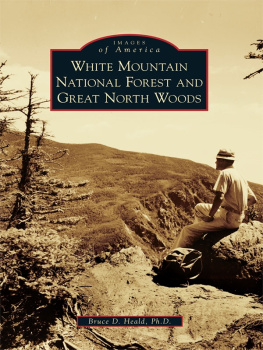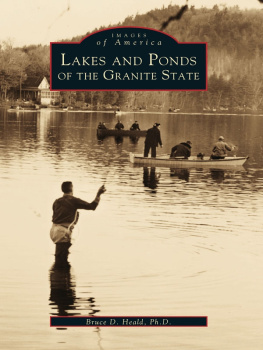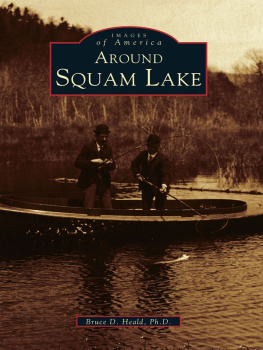

Published by The History Press
Charleston, SC 29403
www.historypress.net
Copyright 2007 by Bruce D. Heald
All rights reserved
Front cover: The Pemigewasset River and valley looking north to the Franconia Mountains from West Campton in the White Mountains.
First published 2007
e-book edition 2013
Manufactured in the United Kingdom
ISBN 978.1.62584.478.1
Library of Congress Cataloging-in-Publication Data
Heald, Bruce D., 1935
Memories from New Hampshires lakes and mountains : fence building and apple cider / Bruce D. Heald.
p. cm.
Includes bibliographical references.
print edition ISBN 978-1-59629-266-6 (alk. paper)
1. New Hampshire--Social life and customs. 2. Country life--New Hampshire. 3. City and town life--New Hampshire. 4. New Hampshire--History, Local. 5. Villages--New Hampshire. 6. Lakes--New Hampshire. 7. Mountains--New Hampshire. 8. Seasons--New Hampshire. I.
Title.
F40.H43 2007
974.2009734--dc22
2007018232
Notice: The information in this book is true and complete to the best of our knowledge. It is offered without guarantee on the part of the author or The History Press. The author and The History Press disclaim all liability in connection with the use of this book.
All rights reserved. No part of this book may be reproduced or transmitted in any form whatsoever without prior written permission from the publisher except in the case of brief quotations embodied in critical articles and reviews.
Contents
Acknowledgements
Special thanks to Richard Allen, Polly Ayre, Stephen Bennett, A.J. Downing, Timothy Dwight, Ralph W. Emerson, Enhanced Computers, J.S. Crane, John Flanders, Sam W. Foss, Watson Glider, Starr King, R.J. McGinnis, Kathy Melanson, Arthur Page, Theodore Parker, John Spargo, Charles Robinson, William F. Robinson, Frederick Tudor, Patricia Welch and John G. Whittier.
Introduction
When we look at the early settlers of New Hampshire, we see a people of courage; an infinite drive and determination to succeed; a freedom of adventure; the challenge of abandoning the old for the new; the lure of an ever-receding frontier; and the restless movement in search of fulfilled lifea search for identity, individualism and freedom.
Now we have a new people in a new frontier where they had to be self-sufficientto place a trade. Thus, the early settlers bonded together and built a communitythe church, school, the country store, blacksmith shop all clustered around the village common.
The village became the focal point for many social, political and economic affairs where the farmers would gather together and bond their settlement and government as a familyThe Spirit of the Covenant.
Looking back on the early farm and family, there was a sense of peace, trust and security. It was a time when the community planted and harvested their crops. The farmer needed little from anybody or anything outside the limits of his own home. He built his own house, raised his own cattle, cared for his own fields and barn, the animals and the simple tools of the farmers trade. His wife, in turn, cared for the home and provided nourishment and clothing for the family. There was the warm kitchen, perfumed with the aroma of fresh-baked bread.
This book describes some of the special memories of life on the New Hampshire farm, family and community of our past. It is a history of ordinary people as they once lived in their isolation and self-sufficiency. It is the intent of the author to preserve these memories before they are overlooked and soon forgotten. Let us cherish the special moments and events that celebrated their adventure and preserve it in memory.
Chapter One
Special Events
Special events are beautiful memories, especially for the young folk during years past. We do have some of the same events todaylike a Christmas feast, Thanksgiving dinner and the church supper. However, some of the luster has left the good old days and the spirit of these events. During the old days, special events were rare, and something to look forward to with excitement and anticipation; we dreamt about them and saved our money because the more special the event, the more money it took.
A special event had to have a degree of regularity so that you knew what was coming and what to expect. A good example was Christmas, which was the most special event, but the country fair was a close second.
It was lucky that special events almost always came just when you needed them most. The fair came after harvest, the Fourth of July when you were all worn out with weeding the garden.
Kids could also have fun at family reunions and in the Christmas program at school. You got an orange as your treat after the program, and the orange was indeed a treasure. Grown-ups regarded the camp meeting and the revival at the village church as special events.
Of course there was Thanksgiving, when all the kinfolk got together for a big dinner, and Easter, when the women got new bonnets and the young folk had an egg hunt.
The circus was a very special event, and it was more fun for both the young and old than anything, but you never could depend on it. It was usually performed in the big city and it cost a lot of money for the whole family to go. You got up early in the morning and drove several miles to the city and you returned after dark with the chores to do.
Even a birthday, a new pup and your first long pants were special events. Parents regarded the arrival of a new baby as a very special event, but it bored the kids.
The more special events you had, the less you enjoyed them and some of them were not very exciting when you grew up. For example, Christmas was not nearly as much fun if you didnt believe in Santa Claus. But you never got tired of the country fair, and while you often wished it would last a year instead of three days, you knew very well you would get fed up with its thrills, as kids do now with special events happening every day.
A MOUNTAIN SANCTUARY
Many consider the mountains and the open country land of the heart. It is the breathtaking space of short vacations furnished with a foundation upon which to build plans and schemes for future holidays in our mountainous region.
To some it consists of fond memories of old, well-known and beloved fields where they can bask in the warm country sunshine or linger in the cool shadows of some mountain glen, with the perpetual music of its rushing stream to lull the senses to blissful forgetfulness of present surroundings.
Then again, the mind may ramble on the most unusual, grandest and most glorious of prospects that we may ever have been fortunate enough to look upon, once more to visualize these inspirations to the sublime emotions.
Many of us have the pleasure of pure imagination to console us in the long winters of our discontent. Dreams we have of the places not yet visited and, sweetest of all, of those discovered by our own ingenuity of reading, and poring over maps, or places not known to fame but promising prospects. What enjoyment it is to keep a mental catalogue of such spots, to be ever on the alert for opportunities to learn more of them, to light on some reference to one of them in a book or periodic article.




